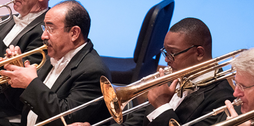 Happy new year! Here are a few auditions and opportunities coming up that caught my eye. If they’re not for you, maybe there’s someone that you can pass them along to. Minnesota Orchestra Fellowships http://www.minnesotaorchestra.org/learn/lifelong-learning/rosemary-and-david-good-fellowship/apply-for-the-fellowship The Minnesota Orchestra’s Rosemary and David Good Fellowship is a two-year program intended to enhance opportunities for African American, Latino American and Native American professional orchestral musicians early in their careers and to encourage greater diversity in the orchestral field. Fellowship includes performance opportunities with the Minnesota Orchestra. Auditions will be held for violin, viola, cello, flute, horn, trombone and bass trombone. Application with recording due January 26. Notification of applicants by February 12. Live auditions and interviews will be held March 12 at Orchestra Hall in Minneapolis.  Twin Cities Gay Men’s Chorus http://tcgmc.org/ad/ Artistic Director Twin Cities Gay Men’s Chorus, now celebrating its 37th season of gay men building community through music, is seeking its new Artistic Director. The new Artistic Director will take the reins August 1, 2018 for the start of our 38th season. Application deadline January 31, 2018, master's degree in music required Twin Cities Gay Men’s Chorus (Volunteer) Singing Member Next auditions January 11 http://tcgmc.org/about-us/auditions/ (next open rehearsal January 9 (required) https://www.facebook.com/events/146825412621244/  McKnight Fellowships for Performing Artists http://www.macphail.org/mcknight-fellowships/ Open to any performing musician in any genre. The McKnight Fellowships for Musicians annually awards four $25,000 fellowships to Minnesota musicians. The awards are unrestricted and are intended to reward performing musicians with a distinctive musical voice who have had a significant performing career over a period of time and are at a career stage. Application: Apply online Deadline: January, 29th, 2018 Final Auditions: Friday, May 4th, 2018  Thursday Musical Performing Artists (Volunteer) https://thursdaymusical.org/auditions At the heart of Thursday Musical’s membership community are the performing members who found the organization to offer classical performance, educational, and teaching opportunities for musicians, music educators and students. Throughout history and time, Thursday Musical has served hundreds of artists who have performed in concert venues all over the Twin Cities and has supported thousands of developing musicians in scholarship and school programs. Application Deadline: Friday, March 9, 2018 (11:59 pm) Auditions: Saturday, April 7, 2018 (between 9:00 am and 12:00 noon)  Veteran’s Creative Arts Competition (Volunteer) https://www.va.gov/opa/speceven/caf/docs/NVCAF_Fact_Sheet.pdf Veterans who are enrolled in the VA Health Care System are invited to participate in the 2018 Veterans Creative Arts Competition. This is an opportunity to gain recognition for your creative accomplishments in music, art, theater, creative writing and drama. All first place entries will be submitted to the national level of the National Veterans Creative Arts Competition. National first place winner s may be invited to attend the National Veterans Creative Arts Festival which will be very close this year! Des Moines, IA from October 29, 2017 – November 5, 2018. Deadline for submissions is January 31, 2018. The Performing Arts divisions must be 3 minutes or less in length and will be filmed at the Minneapolis VA Medical Center from January 8-19, 2018. Please call Kathryn Larson, Creative Arts therapist, 612-467-3622 for submission guidelines and to schedule a filming session. Los Angeles Philharmonic Fellowships (excludes flutists this year)
https://app.getacceptd.com/laphilresidentfellows The LA Phil Resident Fellowship is an excellence-based training program for superb early-career symphonic musicians representing or serving historically underrepresented populations. Its goal is to prepare these musicians to compete for, and win, positions in major professional orchestras. Limited to Violin, Viola, Cello, Bass, or Percussion. Application Deadline: January 29, 2018 11:59pm PDT March 1: Audition invitations and declinations April 16-22: Live auditions Los Angeles
0 Comments
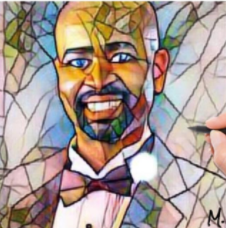 Autism is a spectrum disorder. The most well-known indication is probably a difficulty with communication and social skills, but people diagnosed with ASD can present with a wide variety of symptoms of varying degrees. This is only one of the reasons that I can’t speak for everyone with this condition, but from my own personal experiences, I’ve come to believe that our brains simply work differently than most, rather than them being defective or deficient in any way. Granted, living with ASD can often be challenging, but it is not without its advantages as well. Nowhere is this more evident for me than in how it helped me learn music and continue to learn and perform today. I achieved a nearly professional level of technical fluency on the flute early on, after only a few short years of practice. I think I was around 15 when I started believing it when people called me “talented”. But looking back, I now believe it had more to do with how I practiced and how my brain functioned than any innate musical gifts. First, I chose the right instrument. When I first heard and saw the flute performed live, I was instantly captivated and wanted to play one myself. Had I been more neuro-typical, I might have been influenced by social expectations and chosen a more “gender appropriate” instrument. In my neighborhood, boys didn’t play flutes and black people were supposed to prefer gospel or soul to classical music. But none of that made any sense at all to me. I think that choosing an instrument (or any activity for that matter) for any other reason than you love it, diminishes your chances of being able to muster up the motivation and energy required to master it. Loving something is a powerful motivator. But neuro-typical people’s need to fit in and feel normal can sometimes blind them to their own unique callings. Second, I was obsessed. I didn’t just love the flute; I could hardly stop thinking about it. I couldn’t listen to a song without imagining the melody on flute. I thought it had the most beautiful sound of any instrument on earth and was genuinely taken aback the first time someone disagreed. I couldn’t meet anyone without thinking about what they would look like playing flute. I idolized flutists, and I didn’t realize it at the time, but they literally looked physically more attractive to me than they did to other people. Obsessions are typical among people with ASD. But because I kept most of these feelings to myself, and music is seen as a viable contribution to society, I think most people viewed me as passionate or dedicated rather than obsessive. Third, I loved to practice. For many, practice is boring because it’s repetitive. But I like repetition and routine. I could play the same scales for hours if I didn’t have to pace myself. I can’t explain it, but I think I just love how it makes my brain feel. It’s like turbo charged problem solving in real time, but at the same time, calming. I imagine that the same areas of my brain light up when I practice that kids’ do when they play video games. Moving the metronome up a notch is like advancing to the next level. Sometimes when I couldn’t practice physically, I’d use my imagination and memory to work things out in my head (often in vivid detail). To this day, there is nothing that I can think of that can engage my mind so completely for such long periods of time as practicing the flute. Teachers sometimes feel the need to make practicing “fun”. But when they took this approach with me, I found it distracting and annoying. Practicing by itself was fun. And the need to “make” it fun implied they thought it wasn’t.
Fourth, I have a naturally strong ability to focus, especially on detail. This is helpful because musical ability isn’t just one skill. It’s a combination of many, what I call, “micro-skills”. For instance, on a wind instrument, playing a single note can be broken down into at least three unrelated techniques– starting the note, sustaining it and ending it. In addition, there’s controlling the pitch and controlling the volume, etc. Everyone I know that has mastered the art of flute playing has put in long hours practicing each of these skills separately (as well as dozens more). The neuro-typical tendency is to focus on the big picture (practicing the music). But as they say, “God is in the details”. Developing a solid technique early on gave me the freedom to explore artistry and expression and to enjoy performing. There are other characteristics typical among people with autism that I’m sure have helped me as well. But that’s not to say that someone needs to be high up on the autism spectrum to benefit from them. Neuro-typical people can learn and apply ASD behaviors as well as people with autism can learn and apply neuro-typical ones. It’s just a little easier, I think, when it comes naturally. 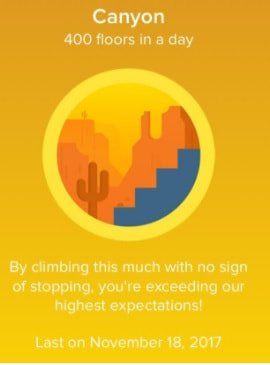 I have a new exercise addiction – stair climbing. I read on the Internet (so you know it’s true) that 5 minutes of stair climbing is the aerobic equivalent of 20 minutes of jogging. So, at first I thought it would be great as a time saver. The plan was to exercise five minutes every morning. But it felt so fantastic, that I just kept doing more and more. I never would have imagined that such a low impact exercise could provide such an exhilarating workout. The 400 flights took me about two hours and is by no means a daily goal. A month ago at this time, I pretty much thought that would be impossible. I didn’t do it all at once though. I climbed about an hour in the morning and did the rest throughout the day, and had my best sleep in ages that night. Two hours of running would have left me sore as hell. But I feel okay today, even after consistently climbing at least a hundred floors a day since the then. So I think this is going to replace my elliptical work out (which replaced the uphill treadmill, which replaced running, lol). I still like my trampoline, though. :) So, no more waiting for machines, tolerating people’s various and mysterious odors, or worrying about dressing “appropriately” for me! Plus it’s free (I’m lucky to have picked a condominium with over 35 floors)! I'm strongly encouraging everyone to check out this method of exercise!! I’ve lost 7 pounds in a month and two people have told me I look more “radiant”. I’m encouraging everyone to look in to incorporating this into their routines. Just be sure to have your favorite tunes to go with. :) My cousin Okee just sent me this newspaper clipping from my college days. It’s from the first time I won a music competition outside my home state of South Carolina. I think my mom might still have a copy of it, as well. I don’t know what happened to that Gemeinhardt student model flute, but it served me well (I ended up winning the national finals as well). I think I still have that turtleneck, though. Lol. I need to get rid of it because there's no space for it in my condo unit. It's a “Nearly Natural” 5209 Ficus Silk Tree -- green and about 6’ tall. It’s currently labeled on Amazon as a “best seller” at $60 with 4½ stars). I bought mine several years ago and it’s only been in the way ever since lol. You can tell it’s fake up close, so it might do better in a larger space. I’ll also throw in the extra pot I bought, if you want. It’s not very stable on its own, so I was going to use the bigger pot to fill with rocks and cover with Spanish moss. I never got the rocks and just ended up leaning it against a wall. I’ll let it go for $40, but you have to come get it. Oh, and this is a picture of it on my balcony, but it's not designed for outdoors. Also might donate it to a church or school. I've got a lot of junk to get rid of (including some musical equipment I've never used (like a drum machine). This is just the beginning. :)  Yesterday, I bit the bullet and got my hand Botoxed. In other words, was treated with Botulinum toxin injections! The purpose of this was to calm a "dystonic tremor" that had developed (I'm guessing) from several years of t trying to play the flute with cubital tunnel syndrome before it was properly treated. The decision to go ahead with the Botox was an agonizing choice, because of the risks involved and the fact that it is, well, a toxin. Plus I had other concerns because I didn't fully understand the process. How could any doctor pinpoint exactly which nerve to target? Then, there were the horror stories I think are best not to discuss here. But after several months of exercises and natural remedies (and a few medications), it seemed like an appropriate course of action. It's been a little over 24 hours, so it's far too soon to say for certain, but so far it seems like the right decision. Though I went into this with some trepidation, I gained a little more confidence when I learned that they don't target the nerve, but the muscle. And the doctor had me wiggle my affected fingers so she could find the precise muscle to inject. Afterwards, I felt two quick pricks (I couldn't look) and it was over. The tremor is already pretty much gone and I'm hoping this is a good thing. There's no pain or stiffness, either. But I was told to expect it to work "between 4 and 7 days", so I've still got three more days and hope that this early "success" is not a sign that it will overshoot the mark. I'll keep you posted. 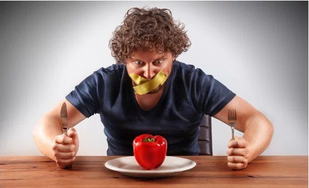 For the past few weeks or so, I've been experimenting with "intermittent fasting". I got the idea after a bit of Internet research, where I learned about several supposed benefits of giving your digestive system a rest every once in a while. What got my attention were articles like those of Dr. Mercola that stated, in essence, that during a fasting state, your body produces more HGH (human growth hormone) and stimulates atophagy, a natural "cleansing process"). Though other benefits were often also cited, these were the main ones for me since I suspected they might help with brain function and cubital nerve repair. There are several different variations to intermittent fasting, but the one that I ended up with was limiting my food intake to fewer hours per day. I started out fasting from 6 pm to 10 am), but going to bed hungry aggravated my sleep disorder. And I learned that's exactly the opposite of what our ancestors did. Apparently, they didn't have refrigerators and 24/7 access to food and spent the beginning of each day "chasing food" (fasting and expending energy) and that left the end of the day for restoration (eating and sleeping). So now I have my first meal some time after noon (unless I get hungry, lol) and stop before 8 pm. An interesting downside to this "diet" is that I've actually gained a few pounds since starting it. By afternoon, I'm really pretty hungry so I tend to make up for the missed breakfast. At the same time, I can't seem to help wanting to "stock up" at night. So, the end result is that I'm taking in more calories than before. But once that's under control, I think it will be great. I noticed a substantial improvement in finger coordination after about 4 days. I can't solely attribute it to fasting though, because I have some other things going on lately as well -- my recent sleep therapy, for one, and I've also given up caffeine and alcohol. In addition, I've gotten a lot more serious about my stretching routine and using my elbow brace at night. They're therapies I've implemented before with less improvement, but I can't rule out some sort of synergistic effect. As excited as I am about all this, I realize I have to be cautious. There have been many other times, when I tried something that seemed to work for a while and then it stopped working. But this really does feel different. I'm playing with a facility that I haven't enjoyed since I was a teenager. And I've often wondered what it would be like if I could combine that facility with the artistry and expressiveness that I've developed over the years. Hopefully, I will soon see. Having bought into the "breakfast is the most important meal of the day" mantra that's been popular for so long, skipping it is very new to me. But it adds a good, full hour to my day, to that's another reason I'd like to make it work. Maybe, I'll go with a 12 hour fast rather than 16. After all, it's after 12 hours that the body reportedly starts to produce the HGH. So for me, the extra 4 hours is really just a bonus.  It's my first year participating in this event and I have submissions entered in three categories. I'm excited to report that I won first place in two of them and they'll be entered into the national competition which will be held later in the year! I was first place in Original Song and World/Ethnic Instrumental Performance. I also submitted an entry in Inspirational Poetry, but did not place. I know this isn't the Avery Fischer Prize or anything -- It's restricted to participation by military veterans enrolled in the VA Health Care Network -- but I'm thrilled to be a part of it. I was looking at some of the national winners from last year, and found the art to be both moving and very impressive. My song entry is "The Bird Song" and my performance entry is "Vision", an improvasory work for Native American cedar flute. Details are listed on my schedule of events on my home page. Hope to see you there!  Today's entry is merely a share of an article I saw online from AARP. They discuss several common medications and over the counter supplements that could actually harm your hearing. Surprisingly, this includes common and popular drugs like aspirin, antidepressants and antibiotics. There are also suggestions about how to protect yourself against hearing loss from these medications. No one can deny that good hearing is a valuable asset to musicians, which is why I am sharing this with you. "Drugs That Can Harm Your Hearing" is an article that I wish I had read years ago. 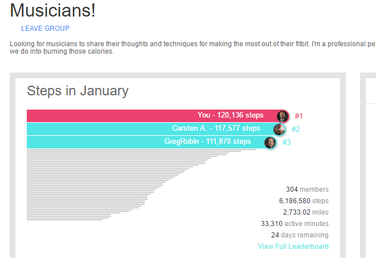 Last night marked my 22 day of “sleep restriction therapy”. My only disappointment is that I had hoped to be through with this in two weeks, but I’m glad I stuck with it. I have to admit, it’s worked better at ending my insomnia than anything else I’ve ever tried. According to my sleep tracker, I’m falling asleep in less than 6 minutes, which is actually faster than the national average. And even though I’m still sleeping under 6 hours, I feel like I’m sleeping more deeply than before. So, based on my experience, I’m going to officially recommend it to anyone with a serious chronic insomnia problem. But with a caveat -- doing this without medical supervision is crazy. It’s a huge struggle and also dangerous, especially if it takes longer than two weeks. And it probably goes without saying that you shouldn’t drive during the duration of this therapy. Fortunately, I was able to walk everywhere I needed to go these last three weeks and didn’t need to drive. I found daytime “microsleeping” to be my biggest problem and it was extremely difficult to avoid. Falling asleep during the day, I’ve read, is probably what prolonged my treatment. Yesterday was my only fairly successful day combating it. I only had one occasion when I fell asleep for about three or four seconds. The only thing that helps for me is to keep moving (which is why my fitbit step totals are rocking so far this month, lol). Seriously, I’m on top of the leader board for the Musician’s Activity Group. I’ve never been near the top 20 before! Anyway, tonight, the sleep minimum goal is 6 hours. This is a magic number for me because I haven’t slept that long in a single night (without medication or alcohol) since the early ‘90’s when I was still teaching at ISU. This would technically be a “cure”, but my goal of this therapy is a full 7 hours of sleep per night. And the real cure is if I can maintain it. So, I suppose only time will tell. |
VisionThis blog is about music, health, challenges, determination and personal and professional growth. I hope it is useful. Archives
January 2018
Categories
All
|

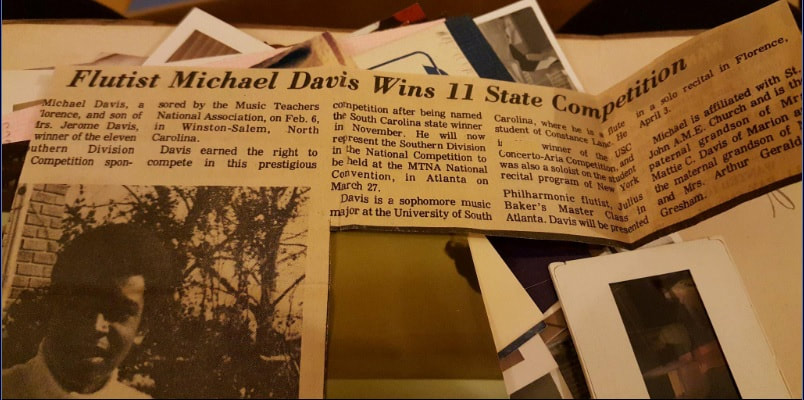
 RSS Feed
RSS Feed